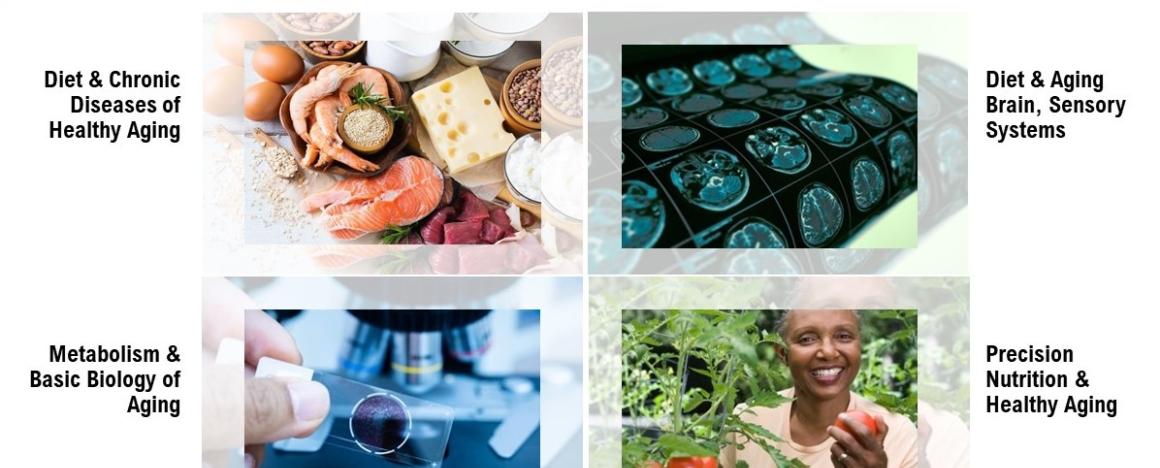Research Directives

Why Research on Aging?
The aging of the American population is an unprecedented demographic shift, with nearly 56 million Americans currently aged 65 and older. By 2034, this number is projected to increase to 77 million, surpassing the number of individuals under 18 years. The implications for public health are significant, as aging is associated with an increased risk of chronic diseases, such as cardiovascular disease, type 2 diabetes, neurodegenerative disorders, and cancer.
Age-related chronic diseases are the leading public health challenge of the 21st century. Diet quality and physical activity behaviors are major determinants for the development and progression of these diseases and are central to the maintenance of physical and mental health, independence, and quality of life. To enhance healthy aging in our society, HNRCA scientists are advancing the understanding of the scientific basis for how diet quality and physical activity influence cellular function, physiology, metabolism, and eating behaviors.
A major concern of HNRCA investigators is the growing gap between lifespan and healthspan – typically defined as the period of life spent in good health, free from the chronic diseases and disabilities of aging. The HNRCA is committed to addressing these challenges and finding effective interventions to promote healthy aging for all individuals.
Our research focuses on extending healthspan as represented by four directives:
- Diet & Chronic Disease Prevention for Healthy Aging
- Metabolism & Basic Biology of Aging
- Diet & Aging Brain, Sensory Systems
- Precision Nutrition & Healthy Aging